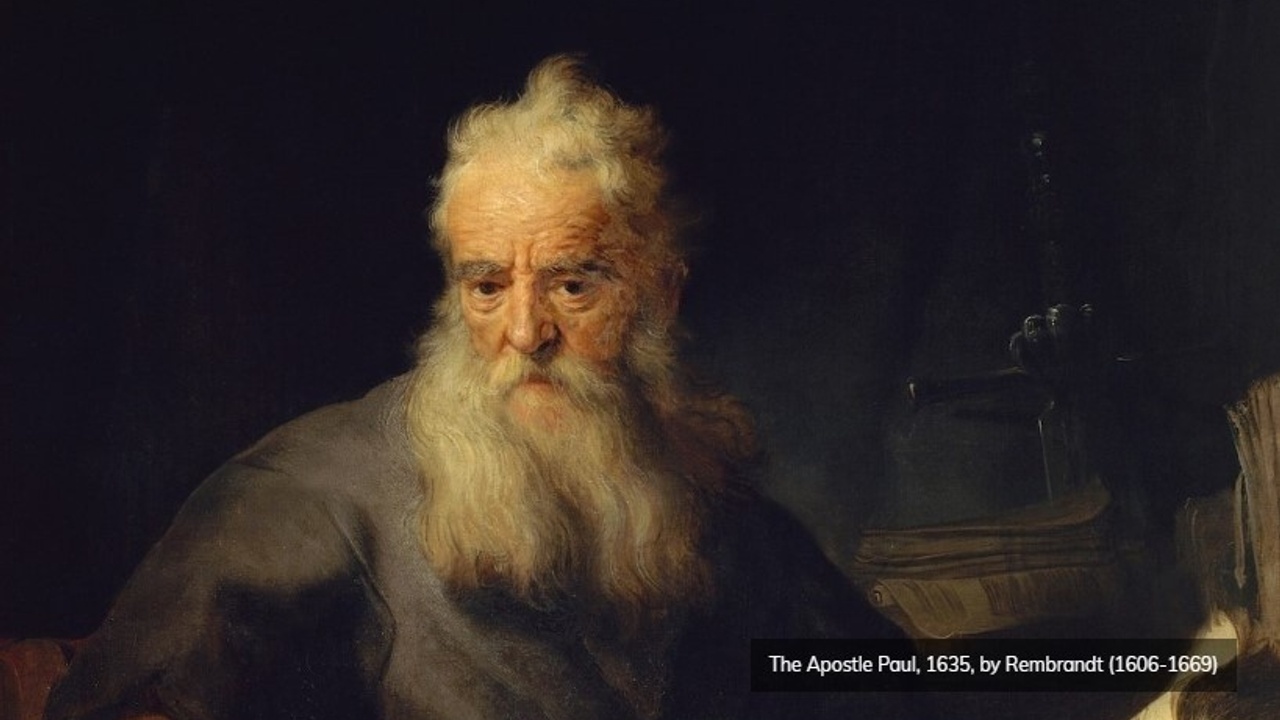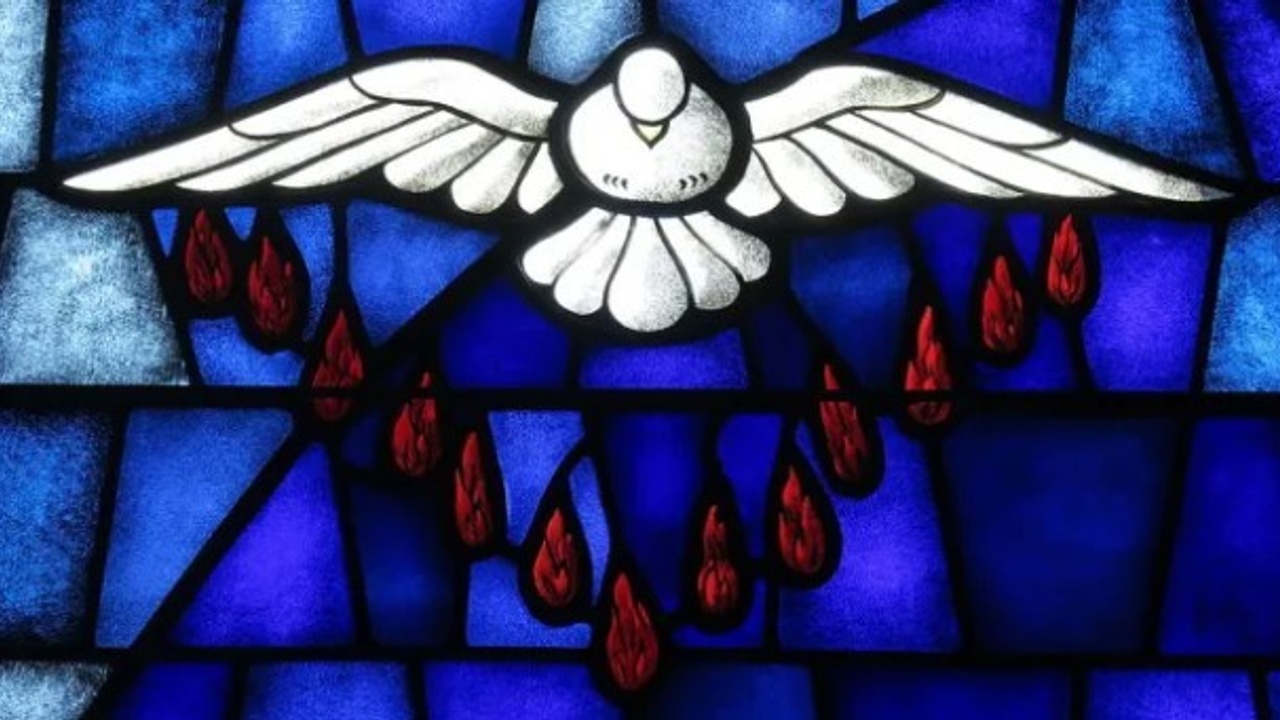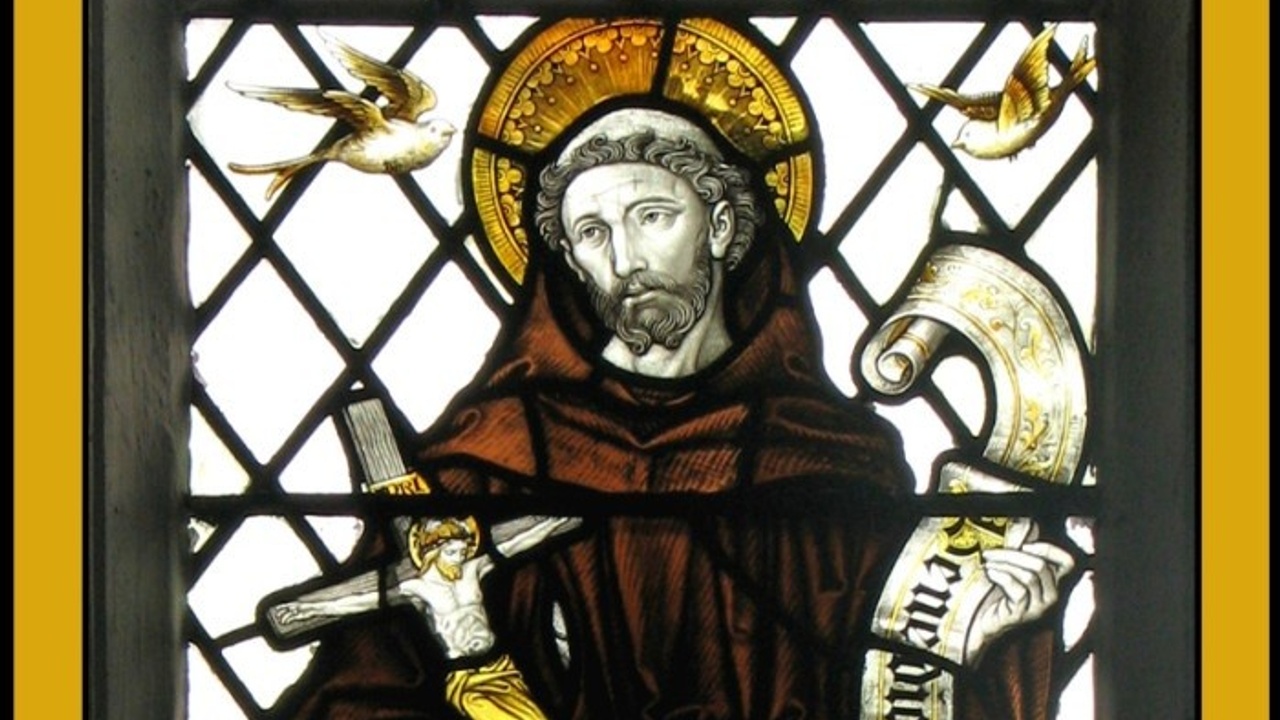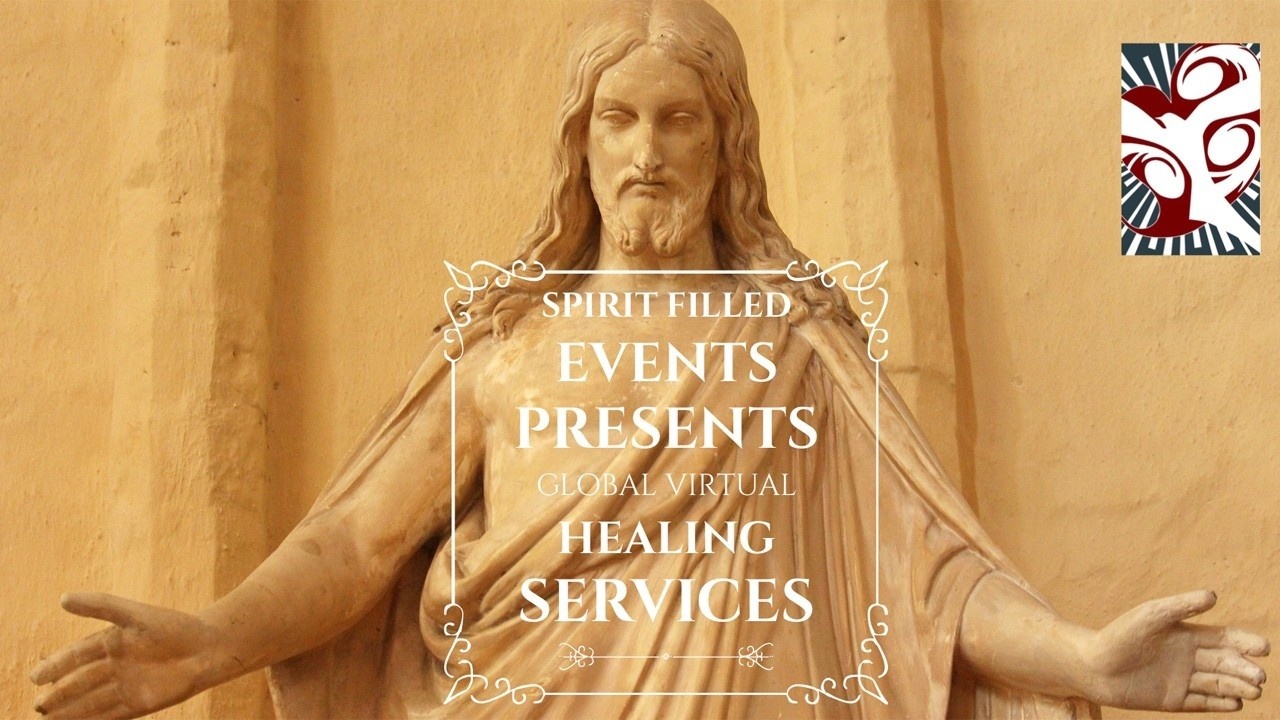Deacon Steve Greco wrote "We are Called to Evangelize," a column which appeared in Catholic Journal on August 9, 2022. Click here to read the article.
Don't give up! Don’t give up! Don’t give up! Don’t give up on your family. God’s love and mercy are bigger than your family challenges!
No matter what your situation is with your family, whatever the circumstances, God is greater than your problems!
Jesus loves your family more than you can ever imagine. Our human love is but a drop in the ocean compared to the mercy and love of Christ!
Through His mercy, God wants to heal your family! In order to have this happen, we need to trust Jesus and surrender your family to Him. Then you will have peace that passes all understanding.
John 16:33, “I have said this to you, so that in me, you may have peace. In the world you face persecution. But take courage, I have conquered the world.”
How do we transform our families to embrace the love and mercy of Jesus? There are seven steps to help parents become the warriors that God wants them to be.
- Consecrate your family to the love and mercy to Jesus. Picture every member of your family individually and offer them up as “sweet incense” onto the Lord! In this way we plead to God’s mercy.
Hebrews 4:16 “Let us therefore approach the throne of grace with boldness, so that we may receive mercy and find grace to help in time of need.”
- Pray for your family’s salvation. One of the most important scriptures to “stand on” and believe is Acts 16:31, “Believe in the Lord Jesus and you will be saved, you and your household!”
Think about this verse. A family can all be saved through the prayers of the parents. Why? Because of the indescribable love and mercy of God and His desire that all be saved.
1 Timothy 2:4 “Who desires all men to be saved and to come to the knowledge of the truth.”
As much as we want to have things go perfectly in this life, the most important thing is to have your family and loved ones with the Lord for all of eternity in heaven! Trust in the mercy and love of Jesus that He wants that much more than we do! Become even greater prayer warriors to obtain this eternal objective for your family!
Romans 8: 38-39 “For I am sure that neither death, nor life, nor angels, nor principalities, nor things present, nor things to come, nor powers, nor height, nor depth, nor anything else in all creation, will be able to separate us from the love of God in Christ Jesus our Lord.”
- Pray for an increase of faith to obtain mercy and blessings for your family. When we pray in faith, it is important that we believe that God has heard us and will provide mercy for the family and individual members. Reflect on this critical Scripture,
Hebrews 11:6 “And without faith it is impossible to please him. For whoever would draw near to God must believe that he exists and that he rewards those who seek him.”
It is faith that moves mountains! Matthew 17:20, “For truly, I say to you, if you have faith as a grain of mustard seed, you will say to this mountain, ‘Move from here to there,’ and it will move; and nothing will be impossible to you.”
We must believe and we will succeed!
Mark 11:24, “Therefore I tell you, whatever you ask in prayer, believe that you have received it, and it will be yours.”
We see this clearly in 1 John 5: 14,
“And this is the confidence which we have in him, that if we ask anything according to his will he hears us.”
Let us pray, “Heavenly Father, increase our faith and that of our loved ones as we stand in the gap for our loved ones, to have the faith of a mustard seed. Thank you for your mercy and giving us a hundred fold increase of faith, in Jesus name. Amen.
- Use praise and thanksgiving to transform your family. In Psalm 22 we discover that God inherits the praises of His people. Why? We see the answer in Isaiah 43:21, “the people whom I informed for myself so that they might declare my praise.” How do we do this? Hebrews 13:15, “Through him then, let us continually offer a sacrifice of praise to God, that is, the fruit of lips that confess his name.”
It is critical that we thank God for His love and mercy and praise Him for what He is doing in our lives! When our attitude changes, God super charges blessings to us. When we praise God for our family, we are saying we trust God and His mercy! We realize that we are all on a journey and that God, through His mercy, will watch over us and our family.
Please pray this prayer, “Heavenly Father, we thank and praise you for my spouse, my children, my parents, and all the people in my life that I love. Thank you for your love and mercy. Teach me to show them your love and mercy in Jesus name amen.”
- Lord, help me to see my family through your eyes. Read this Scripture out loud and insert every family member’s name in the verses.
Ephesians 1: 3-4 “Blessed be the God and Father of our Lord Jesus Christ, who has blessed us in Christ with every spiritual blessing in the heavenly places, even as he chose us in him before the foundation of the world, that we should be holy and blameless before him.”
Be an encourager! Build up and not tear down. Be merciful to your family. Say these words often and sincerely, “I love you! I believe in you!”
Say this prayer; “Heavenly Father, thank you for your mercy! I praise you for my family. I thank you for giving them every spiritual blessings in the heavens. I thank you for making them blameless. Thank you for giving me the gift of encouragement in Jesus name amen.”
- Pray for your family without ceasing.
Ephesians 6:18 “Pray at all times in the Spirit, with all prayer and supplication. To that end keep alert with all perseverance, making supplication for all the saints.”
Pray through the power of the Holy Spirit!
Romans 8: 26-27, “Likewise the Spirit helps us in our weakness; for we do not know how to pray as we ought, but the Spirit himself intercedes for us with sighs too deep for words. And he who searches the hearts of men knows what is the mind of the Spirit, because the Spirit intercedes for the saints according to the will of God.”
Pray a family rosary. Pray with the Blessed Mother. Pray in the Spirit.
- Pray for other families. Make a list of people and families for whom to pray and intercede. You will never regret it! You will be blessed for praying and showing mercy to families! Show mercy by praying for family and friends in Purgatory.
God is healing your family through His never ending love and mercy!
Suffering and trials are difficult for most of us. We cry out to God to fix things: our family, job, health, marriage, relationships, finances, etc. But we think we know best how our lives should run. We don’t ask for God’s will; rather, we usually ask God to do our will.
- excerpt from Overcoming Adversity through Miracles, Deacon Steve Greco's 2018 book. Click here to visit the Spirit Filled Hearts Ministry online store to purchase a copy.
Deacon Steve wrote "The Holy Spirit and God's Great Mercy," a column which appeared in Catholic Stand on July 26. Click here to view the article.
Spirit Filled Hearts Ministry's newest initiative, JESUS THIRSTS FOR AMERICA, a 21-city U.S. revival, is set to kick off November 19 at Christ Cathedral in Garden Grove. The inaugural event is themed I THIRST ORANGE COUNTY and will lead the national movement that calls people everywhere to a metanoia experience and a renewal in Jesus Christ and the sacraments of the Catholic Church.
“We asked the Holy Spirit, ‘what do you want us to do next?’” said Deacon Steve Greco, president and founder of Spirit Filled Hearts Ministry. “During the St. Joseph Summit, God was revealing how hungry people are for the Holy Spirit of God. We heard God in our hearts encouraging us to bring the fire of the Holy Spirit in person to call people to a metanoia and an invitation to conversion as well as to provide tools on how to express their faith and have a reason to believe.”
The JESUS THIRSTS FOR AMERICA movement is deeply sacramental and will have a powerful call to action inviting attendees to publicly commit, or re-commit, to Jesus Christ. The movement comes alongside the U.S. bishops’ initiative for Eucharistic revival and provides a way for the local church to embrace a custom-made, old-fashioned revival that will provide a means for people to encounter Jesus Christ. Local events will include:
- Gatherings with powerful evangelists and the local Church and the opportunity to experience the power of the Eucharist and Mass.
- Opportunities for repentance and Confession
- Tools to better pass on the faith as an evangelist in these challenging times
I THIRST ORANGE COUNTY is the first city in the JESUS THIRSTS FOR AMERICA revival tour. The day-long experience will include Mass, all-day Confessions, live worship, evangelization through witness, and a call to commit. I THIRST ORANGE COUNTY speakers include Bishop Timothy Freyer, auxiliary bishop for the Diocese of Orange; Deacon Steve; Father Robert Spitzer, SJ, president of the Magis Center; Barbara Heil, founder of From His Heart Ministries; Deacon Larry Oney, founder of Hope and Purpose Ministries; and more.
JESUS THIRSTS FOR AMERICA will take place in cities across the United States and plans are underway for other locations in California and Alabama and everywhere in between. As cities are added they will be announced here. Spirit Filled Hearts Ministry is developing a 12-month follow up in order to continue to provide attendees ongoing community, catechesis and tools to frequent the sacraments and become better witnesses of the teaching of the Catholic Church.
To find out more about JESUS THIRSTS FOR AMERICA including to register for I THIRST ORANGE COUNTY, to bring I THIRST to your city, to volunteer or to donate, please click on the “I Thirst” tab at www.spiritfilledevents.com.
Deacon Steve Greco wrote "Transformed by God's Mercy", an article for Catholic Journal which appeared July 14. Click here to see the article.
According to the Catechism of the Catholic Church, God is Love, but “because we are dead or at least wounded through sin, the first effect of the gift of love is the forgiveness of our sins. The communion of the Holy Spirit in the Church restores to the baptized the divine likeness lost through sin.” (733-724)
So, in baptism, we receive the mercy of God through the Holy Spirit and our sins and the punishment due to them are taken away. If we are baptized as an infant, that means the Original Sin we inherit from Adam is taken away, if we are older it means our personal or actual sins are taken away. In place we are given the gift of Sanctifying Grace, which the serious Christian seeks to increase throughout his life so that as he approaches the end of his time on earth he may possess an abundance in the life of grace and go confidently to meet his Lord.
The Catechism goes on to speak about this abundant life:
“He, then, gives us the ‘pledge’ or ‘first fruits’ of our inheritance: the very life of the Holy Trinity, which is to love as ‘God [has] loved us. This love (the ‘charity’ of 1 Cor. 13) is the source of the new life in Christ, made possible because we have received ‘power’ from the Holy Spirit.”
“By this power of the Spirit, God’s children can bear much fruit. He who has grafted us onto the true vine will make us bear ‘the fruit of the Spirit: … love, joy, peace, patience, kindness, goodness, faithfulness, gentleness, self-control.” (735-736)
We “love by the Spirit” and we “walk by the Spirit.”
We see the mercy, love and power of the Holy Spirit working through the lives of the saints, transforming them in the love of Christ. Among the best examples is the life of St. Peter, the head of the apostles and who Catholics believe is the first pope.
Peter was a fisherman who lived in Galilee. He was married, although Scripture never tells us about his wife and he may have been widowed when he joined the company of Christ. Peter, then called Simon, became totally devoted to Our Lord after witnessing the miraculous catch of fish. Christ called him to His side with the words,
“Follow me and I will make you become fishers of men.” (Mark 1:17)
Peter had a great love for the Lord, but was impetuous and often embarrassed himself. Such a time occurred when Christ came walking on water to the apostles. Peter volunteered to walk on water, too, but in just a few steps his faith failed and he began to sink. Jesus rescued him, leading the apostles to declare,
Matthew 14:33 “Truly you are the Son of God.”
Peter also witnessed a miraculous scene at the Transfiguration, and rather than remaining in silent contemplation, he had to call out,
Luke 9:33 “Master, it is well that we are here; let us make three booths, one for you and one for Moses and one for Elijah.”
Peter initially refused to let Christ wash his feet at the Last Supper, “You shall never wash my feet.” (John 13:8). He pledged to die with Christ, (Even if I must die with you, I will not deny you.” Matthew 26:35) but, when the guard came, after a brief scene of wildly swinging a sword and cutting off the ear of a servant, he soon ran away with the others:
John 18:10 “Then Simon Peter, having a sword, drew it and struck the high priest’s slave and cut off his right ear. The slave’s name was Malchus.”
Mark 14:40 “And they all forsook him, and fled.”
He followed Christ at a distance to the place of His passion, but famously denied Christ three times when the servants identified Him. (Matthew 26:69-74, Mark 14:66-72, Luke 22:55-62 and John 18:15-18)
But despite his lengthy list of failings, he had his beautiful moments in the Gospel, too. In John 6, when Christ speaks explicitly of eating His body and blood in the Eucharist, many walked away because they could not accept this teaching. Jesus looked to the apostles to see if they would leave as well, and Peter marvelously responded for himself and the others (Judas excepted),
John 6:68-69 “Lord, to whom shall we go? You have the words of eternal life; and we have believed, and have come to know, that you are the Holy One of God.”
Also in Matthew 16, when Jesus queries His apostles asking, “Who do men say that the Son of Man is?” it was Peter who was able to make his magnificent response,
Matthew 16:16 “You are the Christ, the Son of the living God.”
It is then that he receives Christ’s blessing and the keys of the papacy in the Church.
Matthew 16:17-19 “Blessed are you, Simon Bar-Jona! For flesh and blood has not revealed this to you, but my Father who is in heaven. And I tell you, you are Peter, and on this rock I will build my church, and the powers of death shall not prevail against it. I will give you the keys of the kingdom of heaven, and whatever you bind on earth shall be bound in heaven, and whatever you loose on earth shall be loosed in heaven.”
Peter was called, along with St. Paul, to be one of the first great evangelists in the early Church. Christ personally formed him for three years, and now that Christ has died, risen and ascended into heaven, it is time for the Holy Spirit. At Pentecost, the Holy Spirit comes upon the apostles in the form of tongues of fire.
Acts 2:3 “And there appeared to them tongues as of fire, distributed and resting on each one of them.”
And, these men who had previously been weak, fearful and inconstant, were now lions for the faith. Peter preached his first two sermons, and 5,000 joined the Church. Would that we had numbers of even a fraction of that today!
Peter still made mistakes, but it was the abundant life of the Spirit that guided Peter back to true and clear thinking and finally gave him the courage to witness to his faith with his martyrdom.
WE MUST WANT ABUNDANT LIFE
We’re not the apostles, so how do we get this abundant life that motivated Peter and the others to go out and convert the world? We must want it with all our hearts. We must ask for it as Jesus instructs us in Luke’s Gospel.
Luke 11:9-13 “And I tell you, Ask, and it will be given you; seek, and you will find; knock, and it will be opened to you. For every one who asks receives, and he who seeks finds, and to him who knocks it will be opened. What father among you, if his son asks for a fish, will instead of a fish give him a serpent; or if he asks for an egg, will give him a scorpion? If you then, who are evil, know how to give good gifts to your children, how much more will the heavenly Father give the Holy Spirit to those who ask him!”
We must want the Holy Spirit. We must ask, seek and knock for the Holy Spirit to enter our lives in a powerful way. We will receive His mercy, His love and His power. When we do, then we are “Baptized in the Holy Spirit.”
Fire, power, purpose, love, joy and peace are the essence of a Christian’s life. When you have that, you can expect and experience miracles.
MIGHTY WORKS OF GOD
The Catechism concludes,
“Because the Holy Spirit is the anointing of Christ, it is Christ who, as the head of the Body, pours out the Spirit among his members to nourish, heal, and organize them in their mutual functions, to give them life, send them to bear witness and associate them to his self-offering to the Father and to his intercession for the whole world … these ‘mighty works of God,’ offered to believers in the sacraments of the Church, bear their fruit in the new life in Christ according to the Spirit.” (739-740)
So, we are to bear fruit in the new life of Christ according to the Spirit. We have the sacraments to help us, particularly the two we can receive frequently, Reconciliation and the Holy Eucharist. In Reconciliation we experience the mercy of God, and in the Eucharist He gives us spiritual food for our journey through life.
So, let us be grateful to God for the gift of our baptism and the start of the life of the Spirit within us. If we have lost this gift by serious sin, let us make a good confession and start anew. Let us also be like Peter, letting the Holy Spirit gradually transform us in the love of Christ. And finally, let us make regular use of the sacraments as a way to increase the Holy Spirit’s presence and influence in our lives.
Deacon Steve Greco wrote The Saints and Mercy for Catholic Stand. Click here to view the article.
Deacon Steve Greco wrote "The Saints and the Spiritual Works of Mercy" for Catholic Journal. Click here to read the article.
My spiritual director encouraged me to say “Jesus, I Trust in You” on every bead of the rosary when I am in a state of despair. It is important to use contemplative prayer and meditation when we fear, rather than let the fear disable us. Look for your own “prayer closet” with the Lord—a special place in your home, garden, etc. that you choose for prayer—and spend time in contemplation or meditation. Through prayer, we are transformed and receive the peace and love God wants for us.
John 14:27 “Peace I leave with you; my peace I give to you. Not as the world gives do I give it to you. Do not let your hearts be troubled or afraid.”
How in the world can we receive this peace when we feel as if everything is crashing down on us? I believe achieving peace of heart and mind is impossible from a human standpoint. However, with God, all things are possible.
- excerpt from Deacon Steve Greco's 2018 book Overcoming Adversity Through Miracles. Click here to purchase a copy.
As the corporal works of mercy help our neighbor in the needs of his body, the spiritual works of mercy aid our neighbor with the needs of the soul. As life on this Earth is passing and eternity forever, you can guess which of the two the Church views as the most important!
The Catechism of the Catholic Church says, “Instructing, advising, consoling, comforting are spiritual works of mercy, as are forgiving and bearing wrongs patiently.” (2447)
The first spiritual work of mercy is “admonish the sinner.” St. John Fisher (1469-1535) is an excellent example of this work of mercy. John was born in England, ordained a priest at age 22, and was known for his great learning and humble life. He was appointed bishop of the poor Diocese of Rochester, where he remained throughout his life.
The King of England, Henry VIII, had once been a great defender of the Church (and awarded the title “Defender of the Faith”), but broke with Rome when he publicly divorced his wife Catherine so that he could marry another. All the nation’s bishops feared the king’s authority and went along, but not John. John outraged the king when he declared he would die for the Church’s teaching about the indissolubility of marriage.
Henry founded the Church of England and made himself its head. He arrested John Fisher and had him thrown into the Tower of London. He suffered martyrdom by being beheaded. John was willing to give his life to correct the errors of Henry.
The second spiritual work of mercy is “instruct the ignorant.” This begins with us sharing our faith with others, explaining accurately what we believe and why. We must educate ourselves in the faith to be ready for such a moment and ask Our Lord for opportunities to share our faith.
1 Peter 3:15-16 “Always be ready to make your defense to anyone who demands from you an accounting for the hope that is in you; yet do it with gentleness and reverence.”
Many of the Church’s heroes, the saints, have devoted their lives to instructing the ignorant about the truths of the faith. One example is St. Dominic (1170-1221), founder of the Dominican Order (Order of Preachers). Dominic came from a wealthy family and was dedicated to prayer. He became a Benedictine before starting his own order.
He was called on the fight the Albigensian heresy in southern France, which taught that matter was evil and spirit was good. Hence, some considered suicide a good act. Taking the example of the first apostles, Dominic and his fellow Dominicans went out, two by two, begged their bread and based their preaching on sound doctrine. Legend has it that in 1214 the Blessed Mother gave St. Dominic the rosary to help him convert the Albigensians.
Legend also has it that Ss. Peter and Paul appeared to him and gave him a staff for guiding others and a book to do so by the truth. They told him, “Go and preach, for you are chosen by God to do that occupation and ministry.”
Future Dominicans included the great teachers Ss. Albert the Great and Thomas Aquinas.
Next comes “counsel the doubtful.” We draw upon Scripture to give us guidance in speaking with people.
1 Corinthians 1:25 “For the foolishness of God is wiser than men, and the weakness of God is stronger than men.”
We don’t need to explain things with human logic, but rather, we draw our strength from the Holy Spirit. We let God speak through us.
Padre Pio (1887-1968) was an Italian friar popular with many Catholics today. He received the stigmata, the wounds of Christ in his hands and side, and was given many special spiritual gifts: healing, bilocation, levitation, prophecy and reading hearts.
But he is perhaps best known for the many long hours he spent counseling the doubtful in the Sacrament of Penance. Among those who came were the future Pope John Paul II, whom Padre Pio predicted would be elevated to the highest ranks of the Church.
The fourth spiritual work is “comfort the sorrowful,” which leads us back to the beatitudes in Matthew’s gospel.
Matthew 5:4 “Blessed are they who mourn, for they shall be comforted.”
We must be listeners, actively present to others. When we act in this way, we become Jesus to them! We reassure them that they are not alone, that we—as Jesus does—love and care about them!
St. Maximilian Kolbe (1894-1941) was a Polish Franciscan martyr. He did much to challenge the errors of his day, including Nazism. He published a magazine, “The Knight of the Immaculata,” and preached on the radio.
The Nazis arrested him and sent him to the death camp Auschwitz. In 1941, one man escaped, so the Nazi guards chose 10 men to die in his place. Maximilian famously volunteered to take the place of a married man who had been among the 10.
In his last days dying in the group cell with the other nine, Maximilian did much to comfort the sorrowful. He celebrated Mass for them, and led them in singing hymns. He told them, “You’ll soon be with Mary in heaven.”
Maximilian was the last to die; he was canonized by Pope St. John Paul II in 1982. The man whose life he had saved was there in Rome to witness it.
The next work of mercy is “bear wrongs patiently.” Each of us is hurt and will be hurt by others. Often these hurts can lead to depression and a great deal of anxiety. What do we do? First, we pray for those who injure us. Second, we picture them with the eyes of Jesus. Are they loved by Jesus? Forgiven by Jesus? When we see others as Jesus does, our attitude changes, often immediately.
St. Andrew Dung Lac (1795-1839) was born into a poor family in Vietnam. He converted to Catholicism as a teen, and was ordained a priest in 1823. He lived an exemplary Catholic life, praying, fasting, living a simple life and preaching the Gospel.
Unfortunately, the emperor in Vietnam at the time, Minh Mang, hated the Catholic faith. He martyred Catholics, banned missionaries and tried to get Catholics to renounce their faith by stomping on a crucifix. Andrew had to hide from the authorities. He was eventually caught, tortured and beheaded.
The persecution continued. Christians’ faces were marked with the words “ta dao” or false religion. Families were broken up, and villages destroyed. Andrew and his fellow Vietnamese Catholics had to bear wrongs patiently until the political situation in the country improved.
Andrew was one of 117 Vietnamese martyrs canonized by Pope John Paul II in 1988. Many Vietnamese people today still honor the image of Our Lady of La Vang, a 1798 apparition of Mary during which she gave encouragement to the people in the midst of their sufferings.
“Forgive all injuries” is the next spiritual work of mercy. St. Philip Benizi (1233-85) was a Servite priest was sent by the pope to the City of Fortli in the former Papal States. While he was preaching, an angry 18-year-old man named Peregrine Laziosi struck him in the face, knocking him down. Peregrine immediately repented, and Philip readily forgave him. Peregrine was converted by the kindness and mercy of the saint, joined the Servite order and became a saint himself. Philip’s readiness to forgive an injury converted a sinner and set him on the path towards becoming a saint.
The final spiritual work of mercy is “pray for the living and the dead.” Returning to Padre Pio, this great saint has many stories about helping the souls in Purgatory. One evening, for example, he was praying in church and heard noise. He thought a candle had fallen, but looking up, saw a young brother cleaning. “What are you doing?” Padre Pio asked. “Cleaning,” the brother responded. “In the dark?” the future saint asked. “I was part of this community, now I spend my Purgatory cleaning here.” Padre Pio took it as a prompting that he should pray for the man’s deliverance from Purgatory.
All of us can engage in the spiritual works of mercy. Start with your family and friends and others with whom you are in close contact. Then you can expand your efforts to assist a larger number of people, perhaps through a ministry in your parish.
And remember, our prayers and efforts to help our neighbor are critical to his salvation. In one of the most memorable of the apparitions of Mary to the three children of Fatima, Portugal, in 1917, she showed them a terrifying vision of hell. She then told the children, “You have seen hell where the souls of poor sinners go. To save them, God wishes to establish devotion to my Immaculate Heart. If what I say to you is done, many souls will be saved and there will be peace.”
Like the children of Fatima, let us pray for our neighbor, and look for other ways we can help him in his spiritual needs.
"For me, one of the biggest trials in my life occurred when my daughter notified me she had lung cancer, a terminal disease in most cases. An even greater trial happened six weeks later when she called me from an East Coast-area hospital to tell me the cancer had entered her heart. She said that she might not last the night and was giving her final goodbye.
I remember crying out in anguish! “Why would you take my only daughter away from me? All I have done is try to follow you, devote my life to sharing your love, and this is how you reward me?”
A human response. Afterword, I felt the need to repent. To ask God for forgiveness for not trusting him. I then felt the Lord say to me deep in my soul, “I love your daughter, my daughter, more than you can ever imagine.”
Suffering and trials are difficult for most of us. We cry out to God to fix things: our family, job, health, marriage, relationships, finances, etc. But we think we know best how our lives should run. We don’t ask for God’s will; rather, we usually ask God to do our will."
So what is the purpose of adversity and suffering?
1 Peter 1:6-7 “In this you rejoice, although now for a little while you may have to suffer through various trials, so that the genuineness of your faith, more precious than gold that is perishable even though tested by fire, may prove to be for praise, glory, and honor at the revelation of Jesus Christ.”
Our suffering does have a purpose! I often have felt achieving holiness is impossible without experiencing trials. We are well underway to achieving the crown of life when we undergo trials.
James 1:12 “Blessed is the man who perseveres in temptation, for when he has been proved he will receive the crown of life that he promised to those who love him.”
- excerpt from Deacon Steve Greco's 2018 book Overcoming Adversity through Miracles. Click here to purchase a copy and to see what other books are available through Spirit Filled Hearts Ministry.
Deacon Steve Greco: Lord, Help Me Always to Speak the Truth
Excerpt from Deacon Steve Greco's 2014 book 365 Days of Praise for April 19:
Proverbs 12:22 “Lying lips are an abomination to the LORD,/but those who are truthful are his delight.”
Have you ever lied? How did you feel in your spirit and soul? I know, you thought you had a good reason. It was to protect the innocent or some other rationalization that sounded good at the time. However, deep down you knew the truth, but you didn’t have the courage to “speak” the truth. Was there a time when you did speak the truth, and you felt the peace of the Lord? You felt His presence and love?
Lord, help me always to speak the truth, no matter the cost. I praise You for being the God of truth, for You are the way, the truth and the life.
When do you feel weak and tell lies or half-truths to those in your life? In your personal life? At work?
365 Days of Praise is available through the ministry bookstore.
Click Here to Visit the Ministry Online Bookstore













